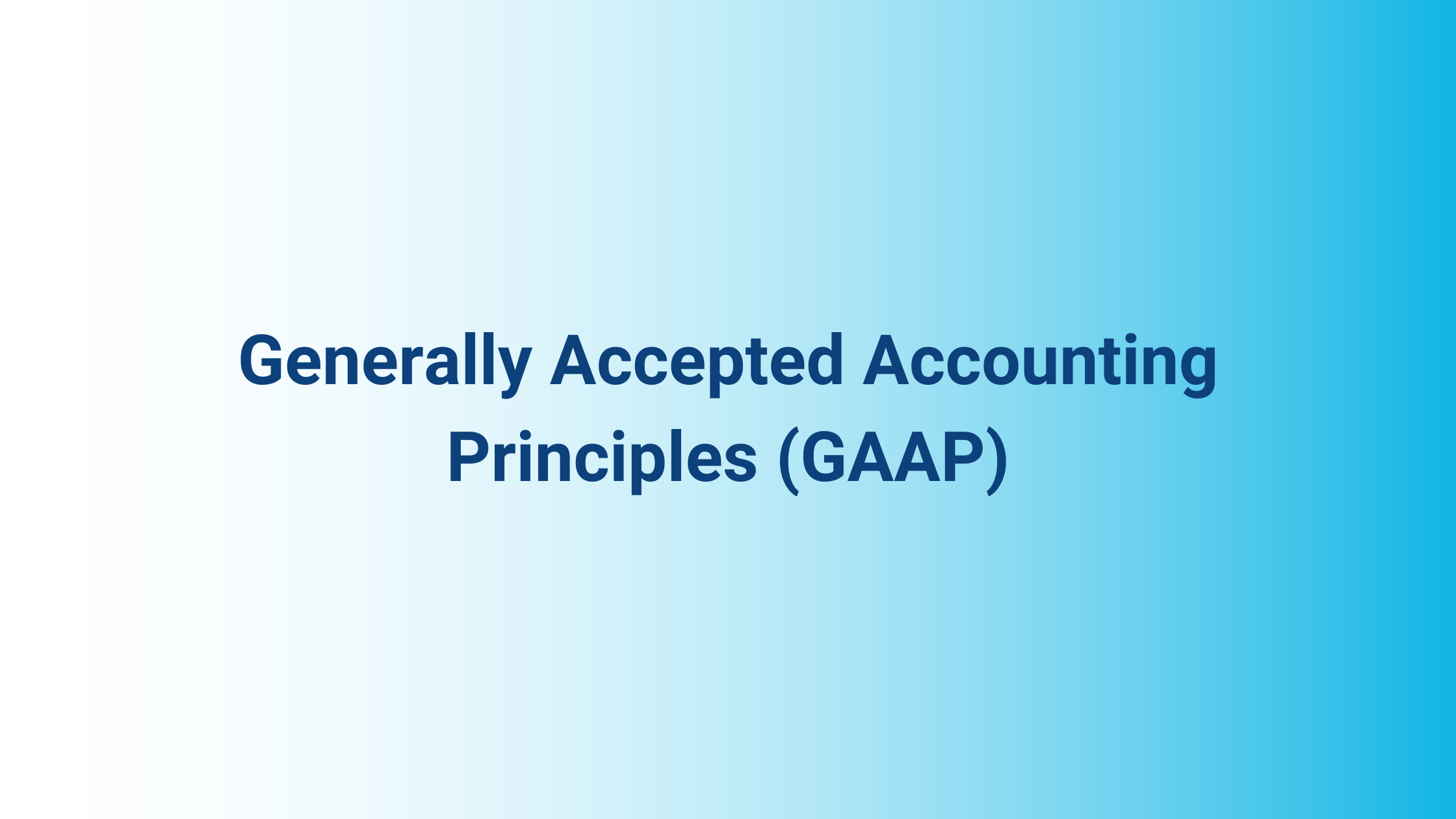Generally Accepted Accounting Principles (GAAP) are the standard framework of guidelines for financial accounting used in the United States. Established by the Financial Accounting Standards Board (FASB), GAAP ensures consistency, transparency, and comparability in financial reporting across organizations and industries.
Why Is GAAP Important?
- Ensures Transparency: Stakeholders can easily understand your financials.
- Builds Credibility: Auditors and regulators trust GAAP-compliant reports.
- Supports Comparability: Enables apples-to-apples comparisons across entities.
- Meets Legal & Regulatory Requirements: Required by the SEC for publicly traded companies and by grantmakers and government agencies for nonprofits.
Who Must Follow GAAP?
| Entity Type | GAAP Requirement |
|---|---|
| Public Companies | Mandatory (SEC regulations) |
| Large Private Firms | Strongly recommended or required by lenders |
| Nonprofits | Often required by funders and regulators |
| Small Businesses | Optional but beneficial for growth |
Nonprofits that receive over $750,000 in federal funding must comply with GAAP for audit purposes.
Nonprofit Bookkeeping and Accounting Services from Charity Charge
Managing finances shouldn’t keep you from your mission. Work with licensed professionals to streamline processes, ensure compliance, and maintain transparency—so your team can focus on what matters most: making an impact. Learn more
10 Core Principles of GAAP
- Principle of Regularity: Adherence to established rules and regulations at all times.
- Principle of Consistency: Consistent use of accounting methods across reporting periods.
- Principle of Sincerity: Accountants must present a true and fair view of the company’s financial position.
- Principle of Permanence of Methods: Use the same methods for all financial periods to ensure comparability.
- Principle of Non-Compensation: No offsetting of debts and assets or income and expenses.
- Principle of Prudence: Financial statements should be based on facts and not speculation.
- Principle of Continuity: Assume the business will continue operating in the foreseeable future.
- Principle of Periodicity: Financial reporting should be divided into standard time periods.
- Principle of Full Disclosure: All material information must be included.
- Principle of Materiality: Report all significant financial data that could influence decisions.
GAAP vs. IFRS: What’s the Difference?
| Feature | GAAP (U.S.) | IFRS (International) |
|---|---|---|
| Authority | FASB (U.S.-based) | IASB (International) |
| Rules vs. Principles | More rules-based | More principles-based |
| Usage | U.S. only | Over 140 countries worldwide |
| Inventory Methods | Allows LIFO & FIFO | Disallows LIFO |
GAAP for Nonprofits
For nonprofits, GAAP compliance means accurate fund accounting, clear reporting of restricted vs. unrestricted funds, and detailed presentation of program vs. administrative expenses.
Key nonprofit-specific GAAP elements include:
- Statement of Functional Expenses
- Statement of Financial Position
- Statement of Activities
- Cash Flow Statements
This clarity is vital for donor trust, grant compliance, and IRS Form 990 preparation.
How to Stay GAAP Compliant
Implement accounting software with GAAP support
Hire or consult a GAAP-trained accountant
Maintain detailed records of all transactions
Prepare regular financial statements
Conduct annual audits (especially for nonprofits or grant recipients)
Final Thoughts
Generally Accepted Accounting Principles (GAAP) are more than just a compliance checkbox—they’re a roadmap to responsible financial management. Following GAAP helps your organization build trust, attract investment or funding, and operate with fiscal responsibility.
Whether you’re managing a nonprofit, launching a startup, or scaling a company, aligning your financials with GAAP gives you the confidence and credibility needed to grow.

















